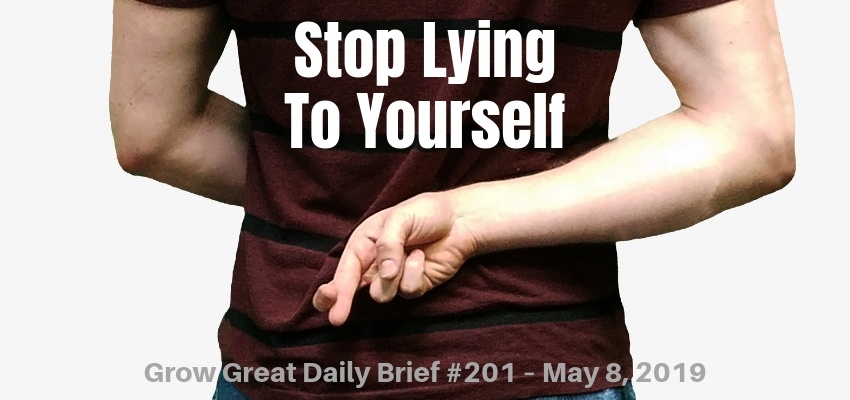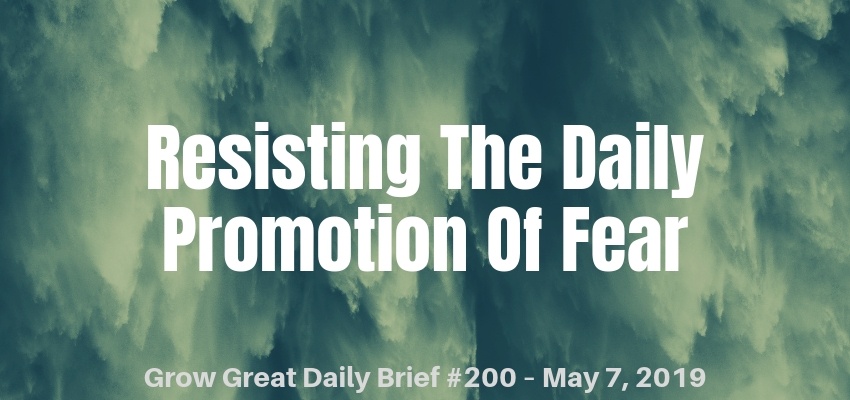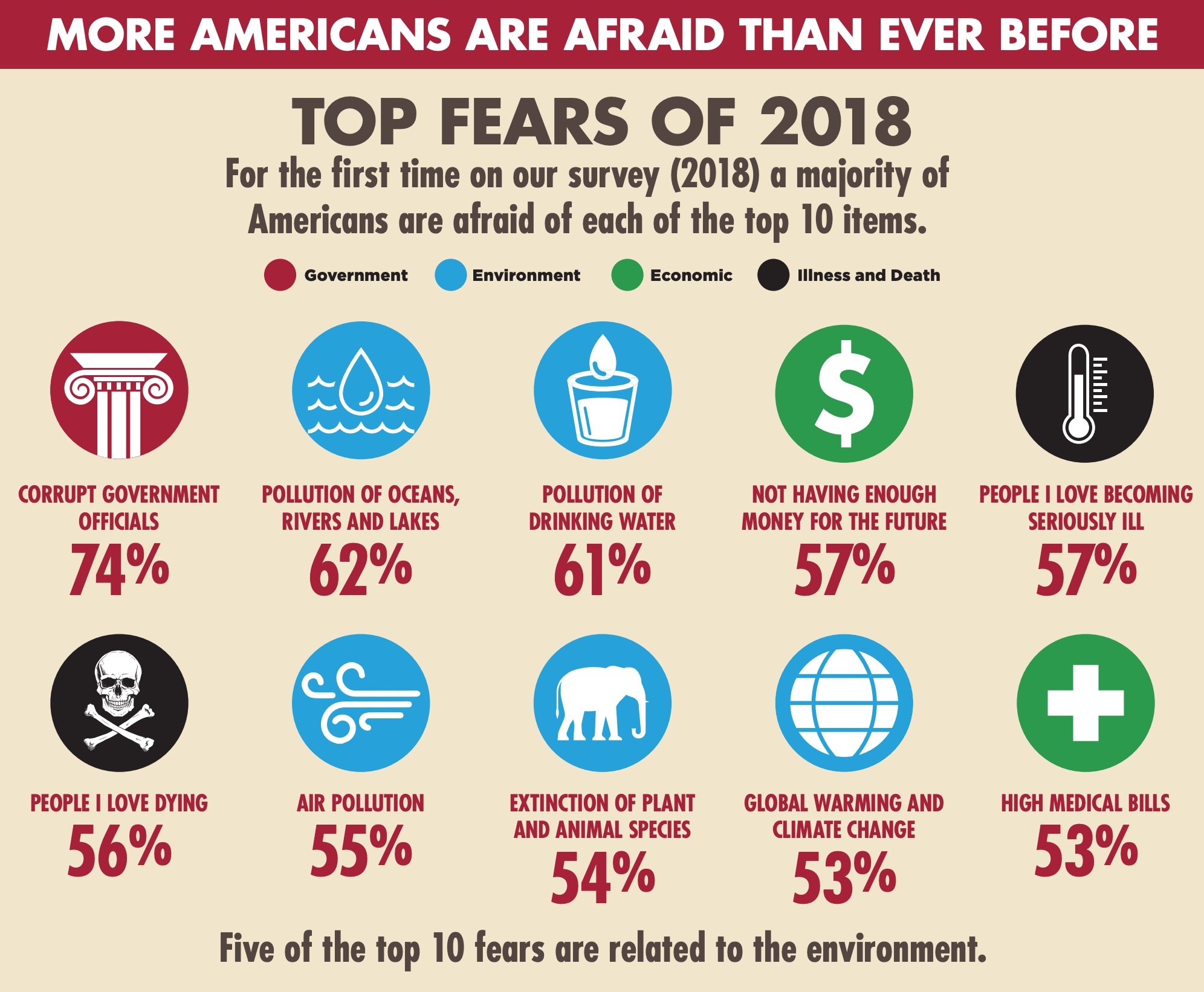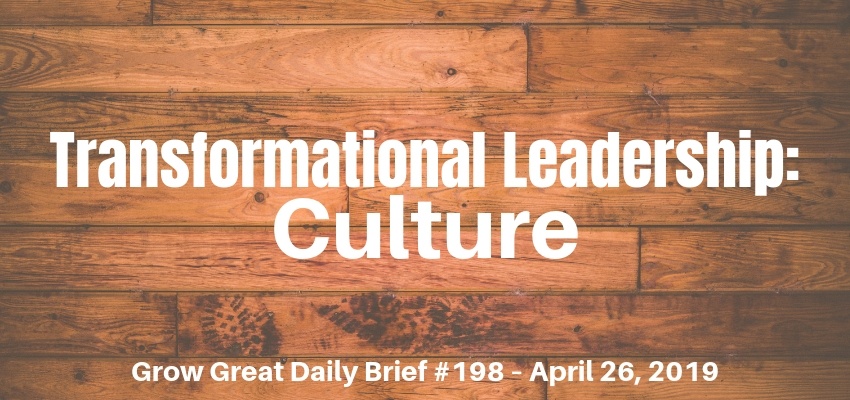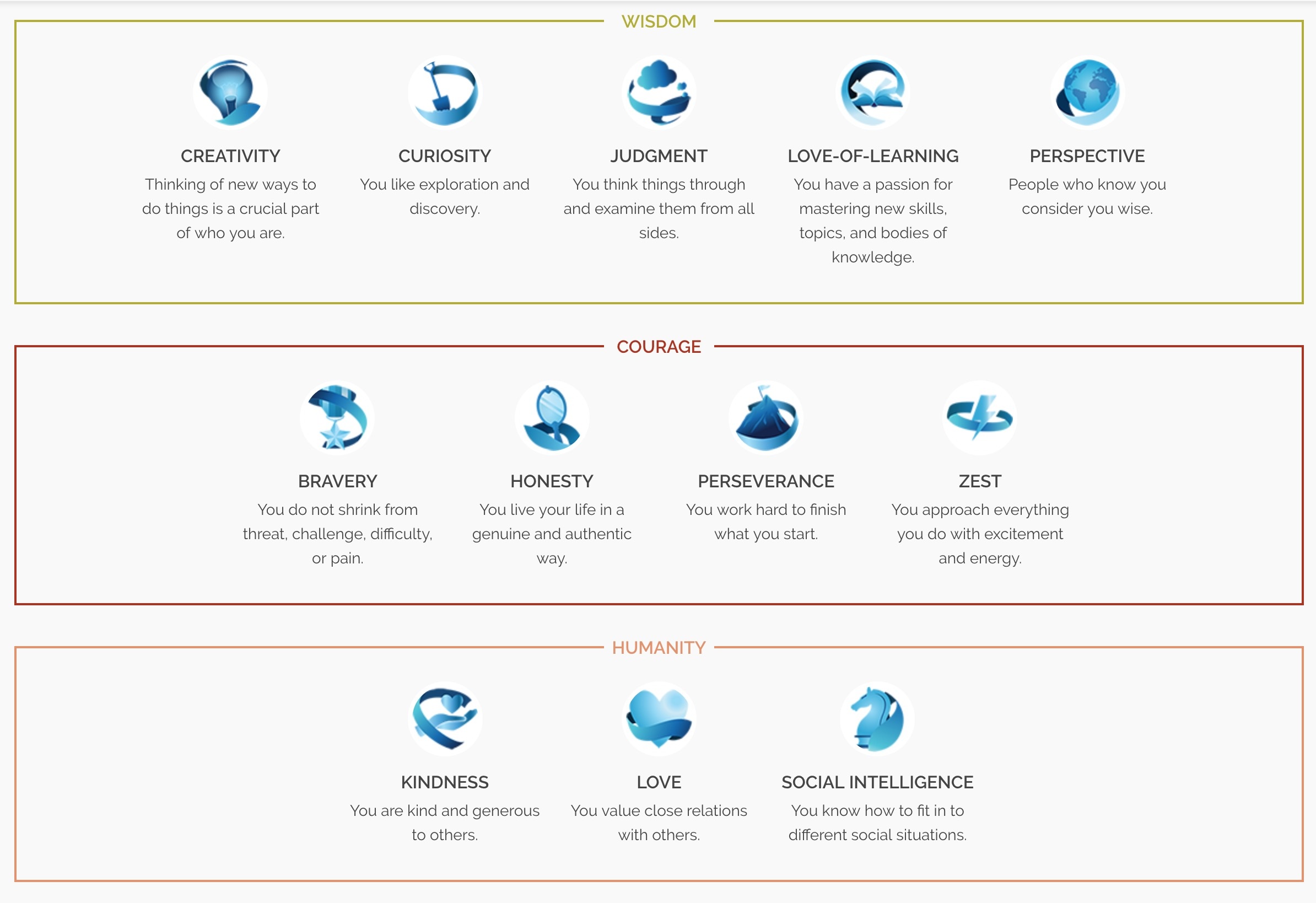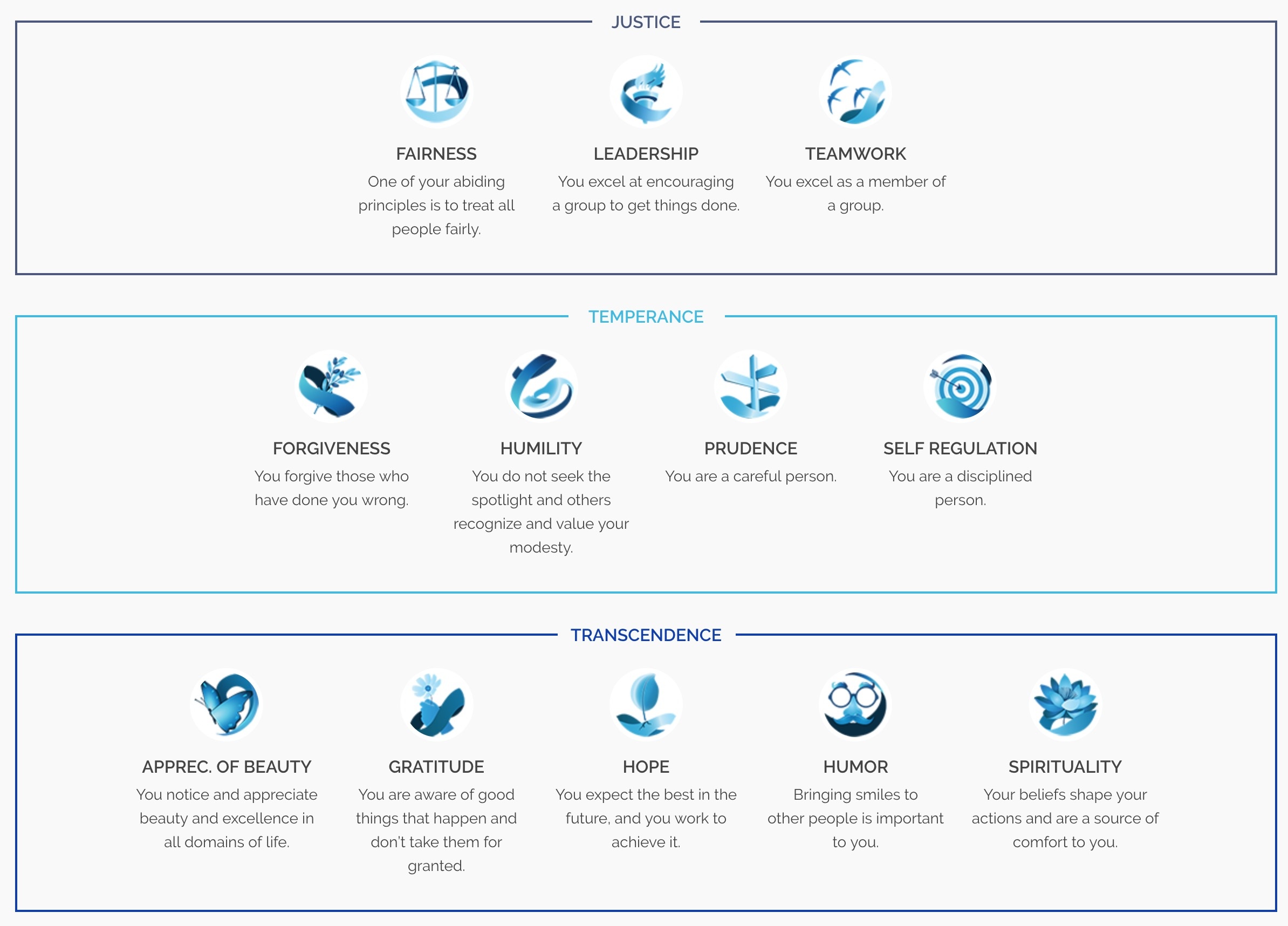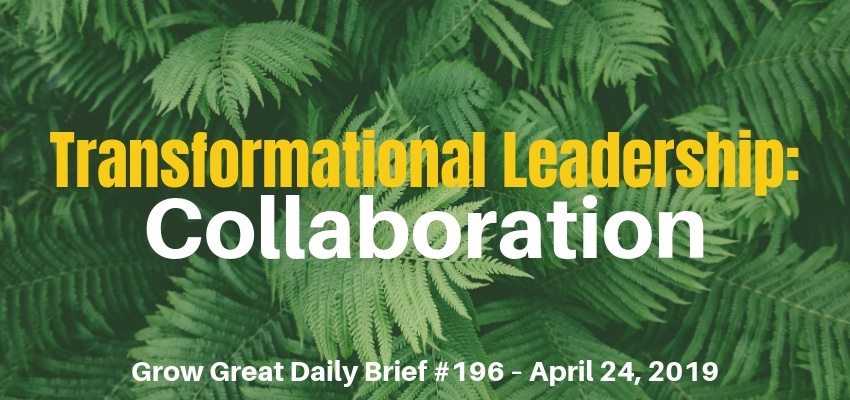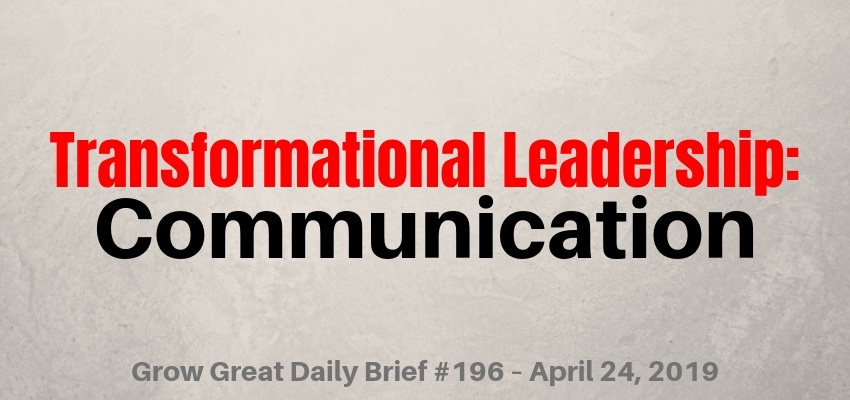Stop Lying To Yourself – Grow Great Daily Brief #201 – May 8, 2019
Podcast: Play in new window | Download (Duration: 8:07 — 9.8MB)
Subscribe: Apple Podcasts | Spotify | RSS | More
This week’s theme is your mental health. Each week we’ll explore a single topic that impacts the lives of small business owners. Usually, the topics apply to executives and leaders in most any arena. You’re smart. You can make the application as it suits you. I’m just here to help you figure it out.
Randy
For the past few years, I’ve had a growing fascination with character strengths. Mostly because our beliefs drive our default behaviors. It’s the reality of who we are at a moment in time. It’s not static because we’re learning, changing and growing.
Lying is easy.
Lying to yourself, even easier.
It’s not only what you say to yourself, but it’s also what you say to others. Most of us put some importance on the way others see us. We care about the opinions of others. Sometimes even people we don’t know. Or like.
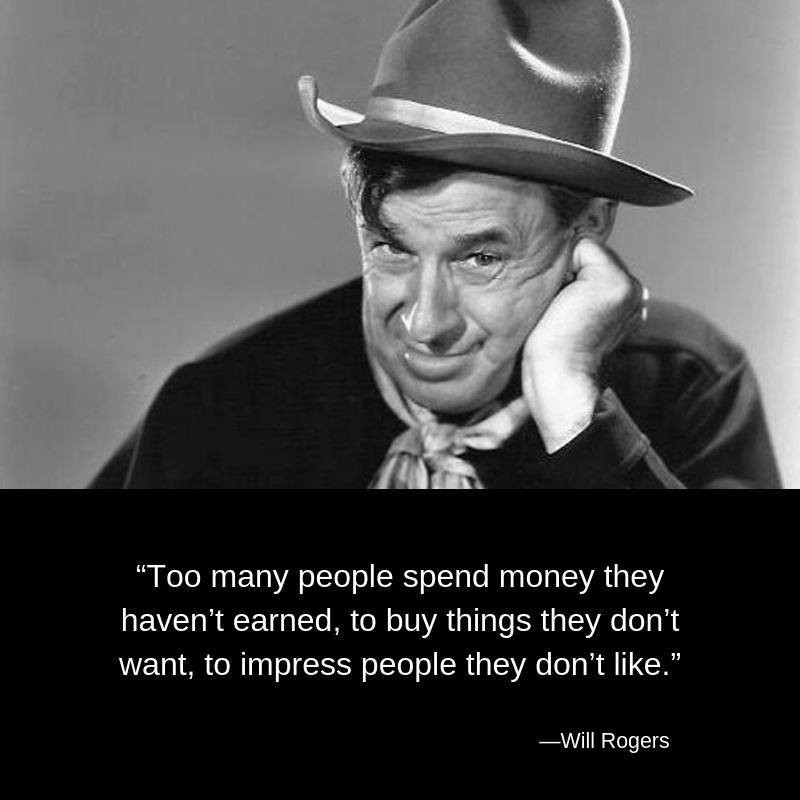
Pretenders. Wannabes. Call them what you will, we all hate them. The hypocrites. Except when it’s us. Then it morphs into the fake-it-til-you-make-it logic loop.
Most folks have a more clear idea of what they’d like to be rather than a true idea of who they actually are. You could more easily describe your ideal than your reality. Evidence of our proficiency at lying to ourselves.
Yesterday we ended the show encouraging you to put in the daily work to grow your self-respect. That theme is in play with today’s show, too. Actually, it’s in play no matter the topic of GROW GREAT because I don’t see any way to grow great without it. Too many of us don’t like who or what we are. Easier to create a narrative that makes us feel better than to put in the hard work to make ourselves better. Don’t use a bandage to make a temporary fix. Opt for the surgery to make yourself well.
Denial is the chief tool of lying to ourselves. Leaders aren’t immune. We deny there’s a problem. We deny we’re struggling. We deny we lack answers. Do we think if we deny it long enough then maybe it’ll be true?
Addicts deny their state. “I’m not addicted,” is the battle cry of every addict. It’s why AA thrives on the tradition of introducing oneself followed by the statement of fact, “And I’m an alcoholic.” It’s the reality check necessary to stop the denial and delusion.
This isn’t about abusing yourself. Nor is it about self-flagellation. It’s about knowing where you are so you can figure out to get to where you want. No different than any GPS app. All directions are based on your current location. Fool the app all you want and you’re only hurting your own chances to arrive where you aim to go.
Along with denial is the high price of promises. Mostly broken promises. All of us make promises to ourselves that go unfulfilled. “I’m gonna ____________, ” is a commonly heard phrase. I grew up mostly in the South. Old folks who grew up on farms recalled hours spent working the cotton fields. Super difficult work. Many of them would say, “Mean to don’t pick no cotton” which simply meant, saying you mean to do something isn’t the same thing as doing it. True enough.
Still we make promises to ourselves. We imagine it the way it should be rather than facing the reality of how it truly is. But tomorrow we’ll do better. We’ll do this, or that. And it’ll be great. The problem is we don’t follow through.
After all is said and done, far more is said than done.
Do you believe in luck? I don’t mean do you believe it ever happens. I mean, do you believe success hinges on it? Do you think the people who find success are lucky and the rest aren’t? It’s just another act of self-deception that might make us feel better in the moment, but it can cause us irreparable damage. Just more lies we sometimes tell ourselves for temporary comfort.
You’re seeing another theme emerge in this series on our mental health. Stop investing in short-term fixes for long-term welfare. It’s a cultural drive and I get it. We want to take a pill to make it all better. We don’t want to put in the hard work or make the sacrifice that would result in long-term improvement. Easier is a better choice but just another lie we’re willing to tell ourselves.
Truth. Evidence. These are invaluable to us. They help us become better people. They help us become better business owners, executives and leaders.
I love to dream of what’s possible. Most of us do. Embrace that. Just don’t fool yourself into thinking your dream is real until you put in the work to make it so.
Be well. Do good. Grow great!
RC
Stop Lying To Yourself – Grow Great Daily Brief #201 – May 8, 2019 Read More »
